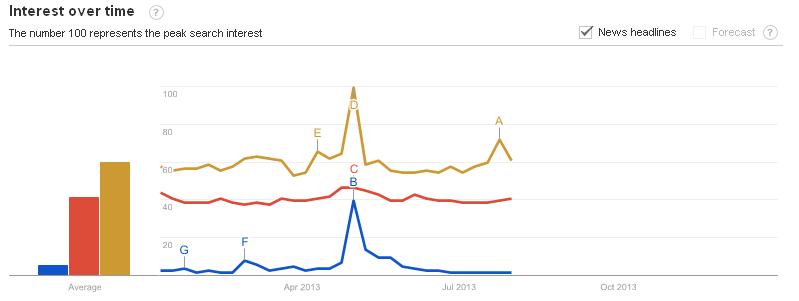The summertime is a cruel one for politicians: everyone is focused on their holidays, rather than social justice or market liberalisation. The main political institutions are on a break and the media starts to develop an interest in esoterica. Even the politicians themselves feel that a pause is in order.
However, for some that is a problem. It has been instructive to watch UKIP in the past weeks trying to maintain a profile in the wake of its performance in the May local elections. In the first weeks, this was relatively simple, as media outlets rushed to reflect the voting and to engage with its periodic rediscovery of the party (warts and all).
However, since then it has become harder and harder to keep the momentum. This has both supply- and demand-side elements to it.
Firstly, UKIP’s key issues – the EU and immgration – have not been forthcoming in providing juicy stories. The EU wrapped up its multiannual financial framework rather peacefully in the end (albeit late) and the ‘no olive oil in restaurants‘ story was notable more for the speed of its retraction than anything else. Likewise, immigration has not had such a high profile, with the exception of the Home Office vans, which produced the somewhat surprising sight of Nigel Farage attacking them as ‘nasty’ (even if his subsequent point – that borders should be more strongly policed to stop illegal immigrants entering in the first place – was rather glossed over).
Secondly, the party continues to lack a depth of personnel to push out materials and content to media outlets. If this week’s front page spread of The Guardian on its interview with Farage was a coup, then it was also notable for its lack of pick up by other outlets.
This matters because of the way UKIP sees itself, as a ‘campaigning party‘ in Farage’s own words. To retrun to a point I’ve made before, the party is constructed around a negative – a dislike of the EU and of immigration – which then translates into fighting the policy in those areas. Even if the policy remains not to their liking, without some additional stimulus to party members, it becomes hard to maintain the anger/disgruntlement/etc.
We can see this in a number of ways. Google Trends shows us that after May, interest in UKIP has tailed right off, while remaining much more stable for the two big parties [yes, I can see issues about search terms, including a royal baby effect, but variations produce the same general pattern]:

Likewise, the General Election 2015 blog has some useful data about traffic to parties’ website, which also point to a recent downturn for UKIP.
As I began, this is a problem common to all parties, but in UKIP’s case the desire/need to break out of its present position requires it to build a stronger and more consistent public profile, to demonstrate its value and relevance across a range of issues and to secure clear evidence of its impact on public policy. No doubt there will be opportunities that will arise – opening of labour mobility to Romania and Bulgaria in the new year, the European elections next May – but once again the party risks seeing its head of steam blowing away in the haze of summer.
